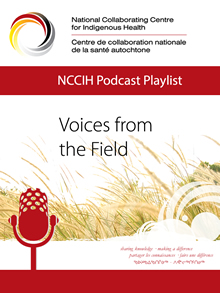 NCCIH Voices from the Field Podcasts
NCCIH Voices from the Field Podcasts
Voices from the Field
Welcome to Voices from the Field, a podcast series produced by the National Collaborating Centre for Indigenous Health (NCCIH), which focuses on innovative research and community-based initiatives promoting the health and well-being of First Nation, Inuit and Metis peoples in Canada.
Episode 30 – Racialized incivility: Identity as a determinant of health
Description
Indigenous nurses are often the target of incivility and hostile work environments because of their Indigeneity. With a looming presence of racialized incivility, Indigenous nurses rarely feel safe in identifying their Indigenous heritage in the workplace. Experiences of racialized incivility can generate feelings of isolation, stress and anxiety which can ultimately lead to burnout and turnover, as well as impacts to patient care delivery. Recognizing and addressing racialized incivility is key to promoting equality and social justice for all.
This podcast presents a panel discussion on racialized incivility and the importance of Indigenous identity to the health and well-being of Indigenous health care providers. Hosted by Dr. Sheila Blackstock, former Academic Lead of the National Collaborating Centre for Indigenous Health and current Associate Professor in the Nursing Program at the University of Northern British Columbia, panelists and practicing Indigenous health professionals Christine Mack, Nellie Erickson, Monica McAlduff, Donna Porter, and Gwen Campbell-McArthur discuss their experiences of racialized incivility in the workplace, the role of identity in determining the health and well-being of Indigenous health care providers, and what needs to occur for Indigenous health care providers to feel safe to identify their Indigenous heritage in the workplace.
Listen on SoundCloud
Download a transcript of the podcast (PDF)
Bios
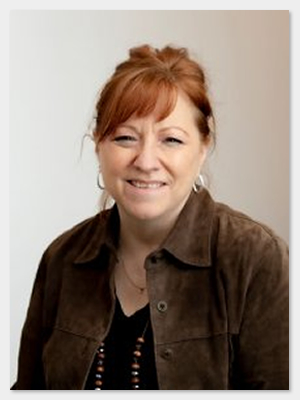
Dr. Sheila Blackstock (RN, BScN, MScN, COHN, PhD) is a Gitxsan nursing scholar. She has over 32 years of nursing experience ranging from acute care to rural health, Indigenous and occupational health nursing.
Dr. Blackstock has developed and delivered an interdisciplinary Indigenous health course and an Indigenous nursing practice course for Thompson Rivers University. She serves on the Board of Directors for the First Nations Health Authority and is an inaugural Indigenous faculty representative on the Board of the Canadian Nurses Association.
She was appointed by the Minister of Health to the provincial In Plain Sight Task Force, where she is working to change health care legislation and enact cultural safety and humility for Indigenous Peoples at points of care.
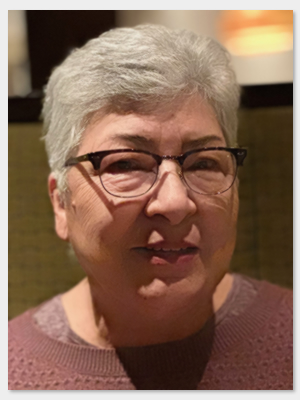
Nellie Erickson, RN, BN. I am Inineww Esqwae from York Factory First Nation. I was nurtured and mentored by my parents and extended family. My relatives relocated from York Factory to Churchill when reservations were being assigned. My mooshum questioned the survival of all the people and resources on a defined small parcel of land. I remain grateful to their decision to trek to Churchill. We had some freedoms, living with family, learning and speaking our language, Nehiyawewin. Our reliance and respect for the lands continued season to season. We had dog teams, hunted, fished, and trapped, and my mother was a creative beader and seamstress. As children, we all helped and cared for one another.
I have been a Registered Nurse for 50 years. I attended and received my Nursing Diploma from Grace Hospital in Winnipeg. My nursing experience includes hospital, public health, community health, primary care, and personal care at home. My goal was always a desire to assist by providing nursing services for Ininineuak. I have worked in 22 First Nation communities in Manitoba, mostly in northern Manitoba.
I have been employed by transferred bands, transferred tribal councils, personal care homes on reserve, and a hospital on a First Nation reserve. I believe my successes are connected to having confidence to ask for help and in knowing what my knowledge and skills are.
Licensure and practise standards are defined by Colleges of Nursing. To remain employable and competitive with current nursing trends and service needs, I stayed connected to life-long learning by enrolling in distance education that was available at the time. Computers and internet were not and are still not always accessible.
I witnessed many changes throughout my career. Adapting to change is a skill required and perfected overtime. Sharing knowledge with interdisciplinary teams that intersect and communicate with communities is a highlight through out my career. I know nursing, is just one spoke in the wheel; the community, as a partner, can help crank that wheel. Today, we have many more highly educated scholars to help continue as partners to move our health services to more acceptable and approachable settings, with hope for improved outcomes.
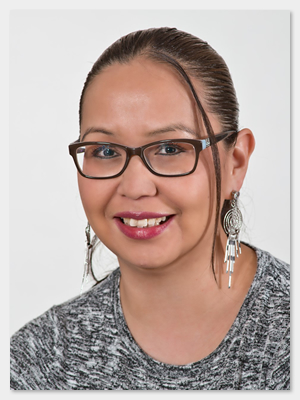
Christine Mack , RN, is from the Nuxalk Nation in Bella Coola, BC (the heart of the Great Bear Rainforest). Before smallpox ravaged the area, there were 200 communities, and after smallpox, less than 200 people survived. They all came together, and this is how Bella Coola was formed. Resiliency is in Christine’s blood. She takes pride in being a strong Nuxalk woman and mother to her five beautiful children. Her children have given her the strength needed to continue moving forward and start her healing journey.
Christine began her career in health care in 2002. She started as a Resident Care Aide and then furthered her education to become a Licensed Practical Nurse in 2008. She has been an LPN since 2009 and spent all these years working in dementia care at various nursing homes in Kamloops, BC.
Christine has plans to further her education and become a Registered Nurse. Having a child with mental health problems and losing both her best friends to addictions has made her passionate about mental health and addictions. She is going to pursue that path and plans to work in mental health and/or addictions after she has completed the Registered Nurse program.
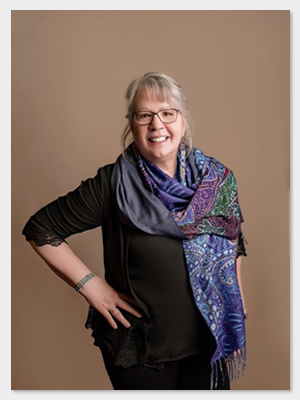
Donna Porter, RN MAL, is a proud Métis Woman and a citizen of Métis Nation BC. She is of Saulteaux/Ojibway ancestry on her mother’s side and first-generation German on her father’s side. Her Indigenous family originated from the Red River Settlement of Manitoba. She is mother to four children and grandmother to five grandchildren. She has been an Indigenous Registered Nurse for 4 decades, starting her career as a Health Care Aide before becoming a Registered Nurse. She holds a Master’s Degree in Leadership with a health focus. She has worked as a Registered Nurse in three different health authorities between Alberta and BC. She was a Neonatal Intensive Care Nurse for more than 20 years, working in neonatal transport and teaching others in neonatal nursing/resuscitation/ECMO and transport. Donna worked in operational leadership, perinatal services, surgical services, as well as held operational Director positions in both urban and rural Northern centres. She supported Dr. Martha MacLeod for two years in co-teaching Nursing 704 Leadership in Health Practice for first year Nursing Master’s students at the University of Northern British Columbia (UNBC). She is currently the Regional Lead for Cultural Safety and Anti-Indigenous Racism Education in the Indigenous Health team at Northern Health, situated in Prince George BC.
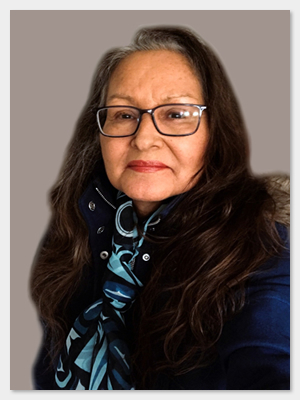
Gwendyline Campbell-McArthur , PsycheN, FPRN BScN, MN, is of Ojibwe/Saulteaux Metis and Ukrainian ancestry. She was born in the Adhesion to Treaty 5 territory at Kississing, Manitoba. Raised on the land, fishing, hunting, trapping, and gathering, along with the teachings of her paternal grandmother, her father, Bob Campbell – master hunter and fisherman, Gwen is the niece of Elder Mae Louise Campbell – Indspire Laureate for her work with vulnerable Indigenous women and families across Canada. As a Psychiatric Mental Health Nurse, Gwen’s work has spanned five decades and her practice has been guided by Indigenous Elders and other spiritual leaders, primarily in the Shuswap Nation where she has lived as a guest since 1988. Gwen is a proud and dedicated mother of two adult sons. Her eldest is a 2017 BSN Graduate of Thompson Rivers University (TRU) and her youngest works as a Plumber Apprentice and is also completing his studies at TRU.
Gwen graduated from the Registered Psychiatric Nursing (1978) program and completed her Post RN BSN – Mental Health (2007) and Master of Nursing (2010) degrees. She is a Psychiatric Mental Health Nurse Specialist in Indigenous Mental Health and Addictions, a nurse educator, a senior researcher, author, and activist. After being awarded the Role Model of the Year by Corrections Service Canada – Kamloops Parole in 2014 and retiring in 2015, Gwen has been extensively involved in volunteerism in many capacities. She was invited to join the Board of Directors of the BC Academic Health and Science Network as an Indigenous Patient Partner in 2020 – 2022 after serving on the BC Support Unit Provincial Patient Council. Gwen has been involved in the National Sixties Scoop Foundation engagement for Indigenous survivors of the 60s removal of children from their homes. As a valued Metis Elder, Gwen volunteers with Aboriginal Education programs at South Kamloops Senior Secondary, is involved with Community Living BC’s Indigenous Advisory Council, and is frequently of service to her community. She remains an activist for Indigenous health, supporting anti-racist practices where possible, and for #Kamloops Stands with Ukraine towards a peaceful resolution for the war in Ukraine.
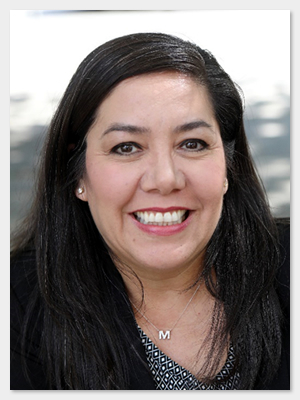
Monica McAlduff , RPN, BHSc, MA, is from the Secwepemc Nation and serves as the Acting Vice President, Quality, Cultural Safety and Humility and the Office of the Chief Nursing Office (OCNO). Monica proudly joined the First Nations Health Authority in January 2020 as the Executive Director within the OCNO, bringing with her over 30 years experience in health care, first as a Registered Psychiatric Nurse in Vancouver and the Lower Mainland and then progressing to several leadership roles within the health care system.
Monica holds a Bachelor of Health Sciences degree in Psychiatric Nursing from Thompson Rivers University as well as a Masters of Arts in Leadership and Training from Royal Roads University. She has held numerous leadership roles across the system of care and is known for her strong client and family advocacy and passion for improving quality and safety to the health care system. Monica’s leadership approach is from a humility lens and seeing the strengths and resilience that First Nation’s people possess, as the way to change the system.
Outside of her professional life, Monica enjoys being with her husband and her son as well as experiencing the outdoors on the North Shore. She has a passion for connecting with people and experiencing the fullness that life has to offer.